
Find Help
More Items From Ergsy search
-

Can appendicitis be treated with antibiotics?
Relevance: 100%
-

What is the treatment for appendicitis?
Relevance: 72%
-

What is Appendicitis?
Relevance: 67%
-

Can appendicitis go away on its own?
Relevance: 66%
-

What is the likelihood of needing surgery for suspected appendicitis?
Relevance: 65%
-
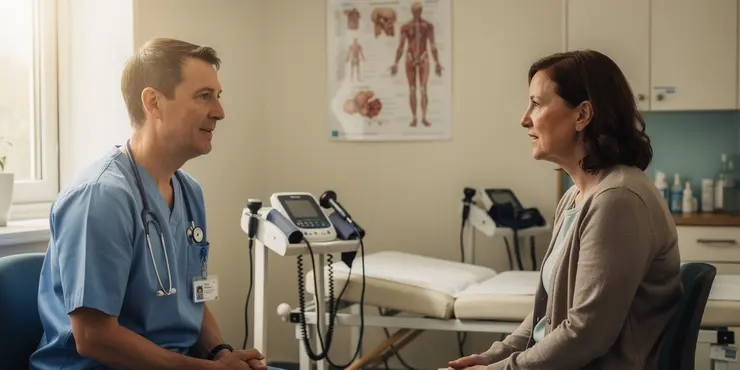
Is appendicitis hereditary?
Relevance: 65%
-

What are the potential complications of appendicitis?
Relevance: 65%
-
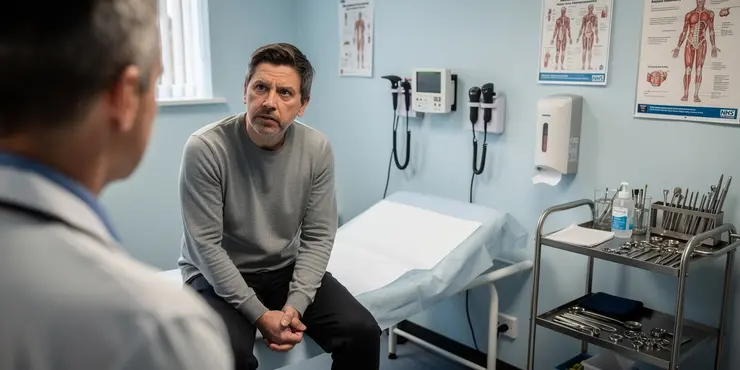
What happens if appendicitis is left untreated?
Relevance: 63%
-

What causes appendicitis?
Relevance: 62%
-
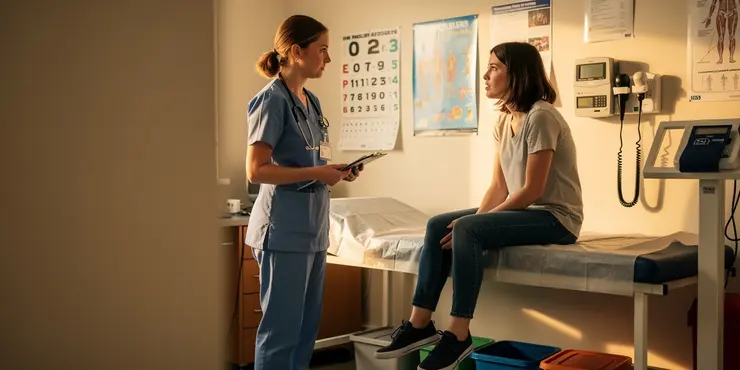
How is appendicitis diagnosed?
Relevance: 59%
-

What are the common symptoms of appendicitis?
Relevance: 57%
-
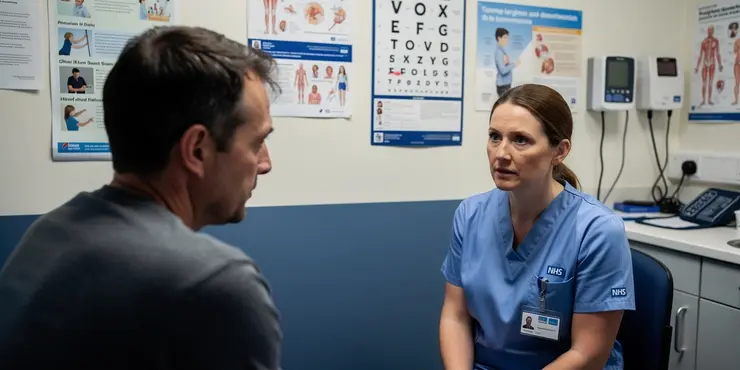
How soon should you see a doctor if you suspect appendicitis?
Relevance: 55%
-

How is appendicitis different from other causes of abdominal pain?
Relevance: 54%
-

Can appendicitis occur more than once?
Relevance: 54%
-
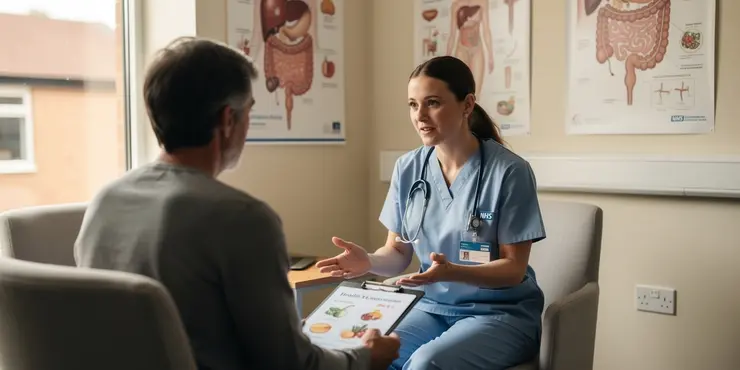
Can diet or lifestyle changes prevent appendicitis?
Relevance: 54%
-
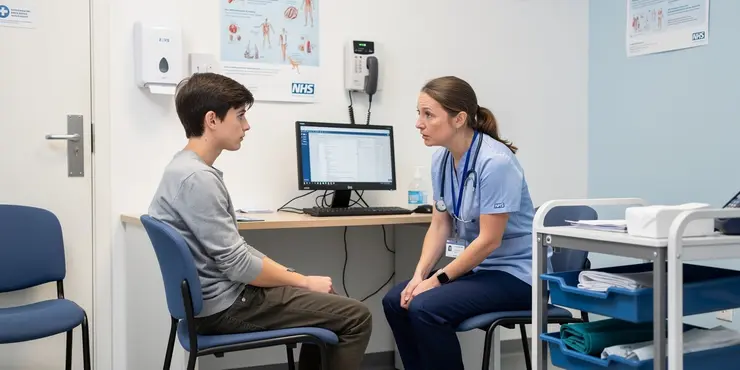
Is appendicitis common in any particular age group?
Relevance: 54%
-

Where is the pain located when you have appendicitis?
Relevance: 52%
-
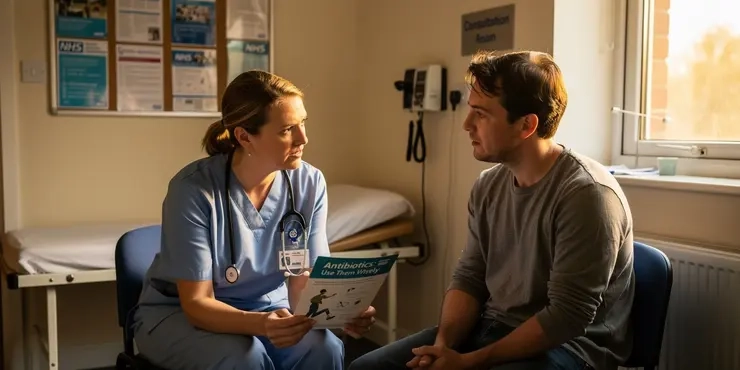
Antibiotics and You: An introduction to antibiotic resistant infections
Relevance: 49%
-

Is it bad to take antibiotics?
Relevance: 46%
-
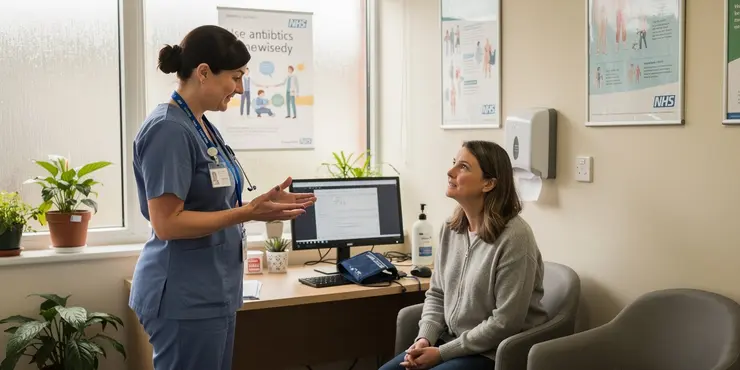
What is antibiotic resistance?
Relevance: 46%
-
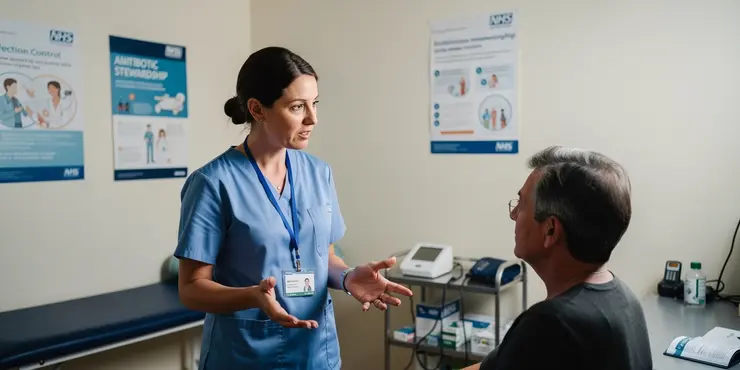
Is taking antibiotics always bad?
Relevance: 44%
-
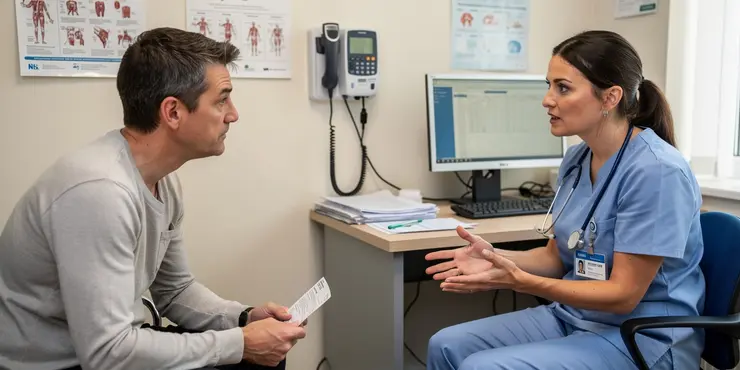
Can taking antibiotics be harmful?
Relevance: 44%
-
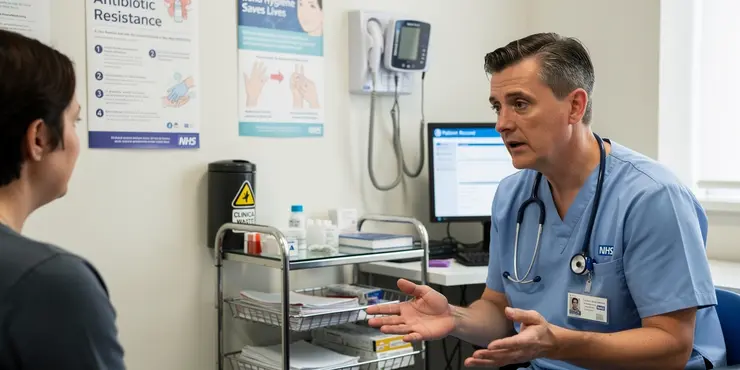
Why is antibiotic resistance a problem?
Relevance: 44%
-

Can I take antibiotics for a cold?
Relevance: 43%
-

Do antibiotics work on viral infections?
Relevance: 42%
-

What are common side effects of antibiotics?
Relevance: 42%
-

Why is antibiotic resistance a concern with gonorrhoea?
Relevance: 41%
-

Can antibiotics treat norovirus?
Relevance: 41%
-

What antibiotics are used to treat gonorrhoea?
Relevance: 41%
-
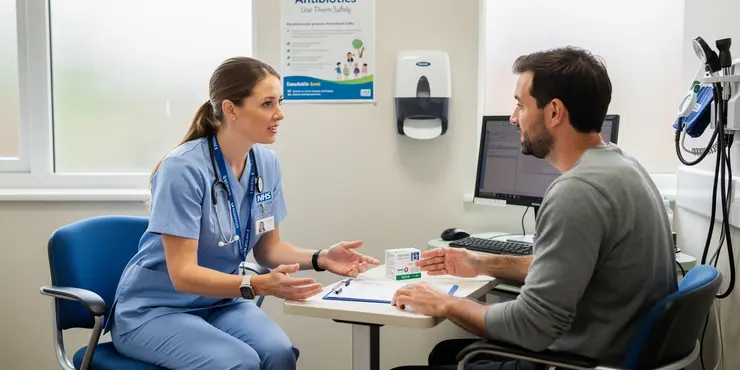
Can taking antibiotics frequently cause resistance?
Relevance: 41%
-

Should I stop taking antibiotics if I feel better?
Relevance: 40%
-
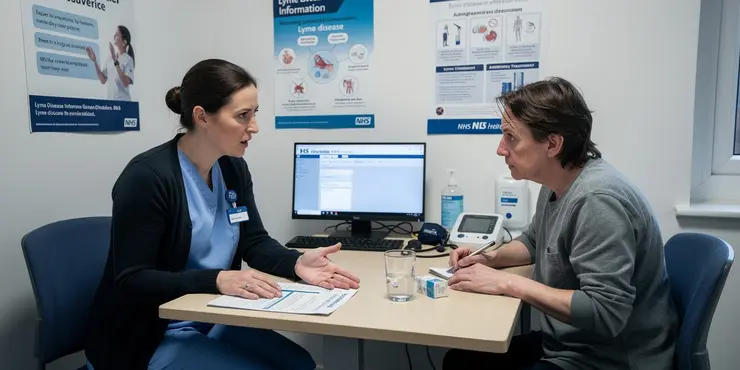
How effective are antibiotics in treating Lyme disease?
Relevance: 40%
-

Can the bubonic plague become resistant to antibiotics?
Relevance: 40%
-
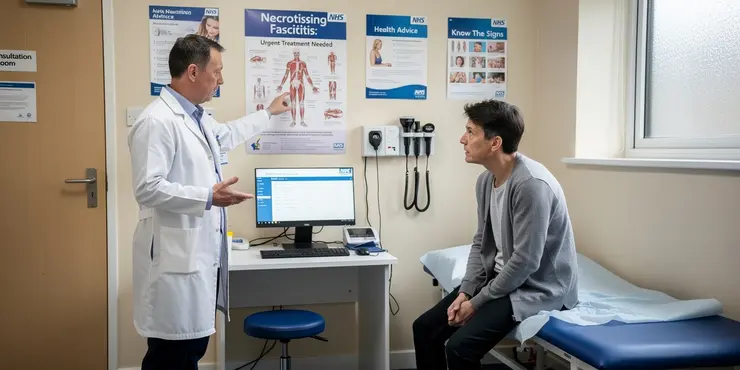
Can antibiotics alone cure flesh-eating disease?
Relevance: 39%
-
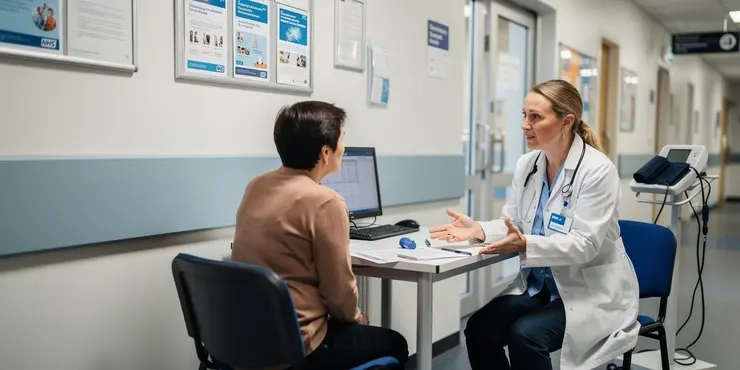
Acute COPD in Adults: Antibiotics or not - Dr Nick Francis
Relevance: 39%
-
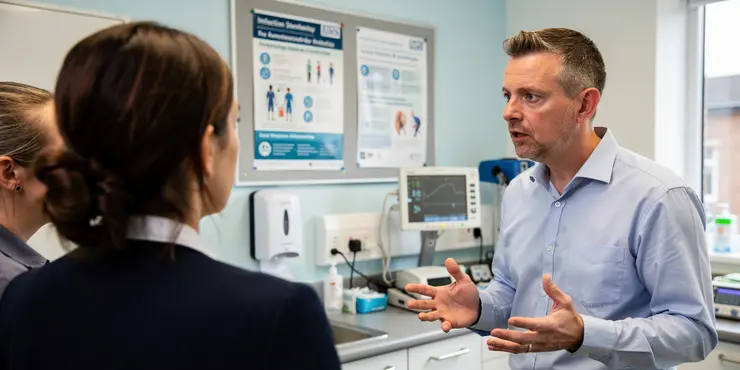
Efforts to Combat Antibiotic Resistance Gain Momentum with New Research Initiatives
Relevance: 37%
-

How do antibiotics affect gut health, especially in older adults?
Relevance: 36%
-
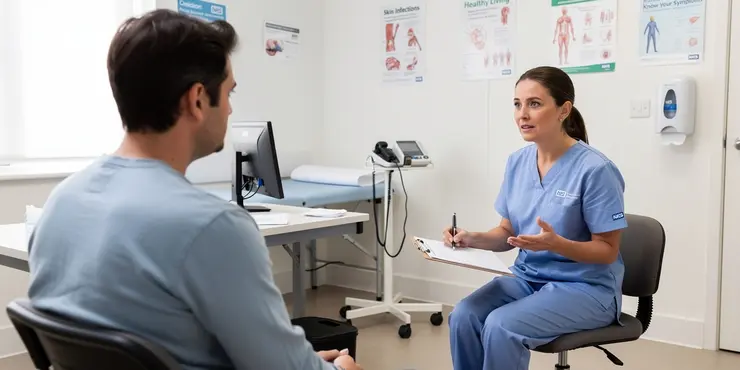
2 episodes of cellulitis and been given antibiotics but the redness doesn't seem to be improving?
Relevance: 35%
-

Can you live without an appendix?
Relevance: 33%
-

GPs Warn Antibiotic Overuse Could Lead to Superbug Crisis
Relevance: 28%
Introduction to Appendicitis Treatment
Appendicitis is a common medical condition characterized by inflammation of the appendix, a small pouch connected to the large intestine. Typically, treatment involves surgical removal of the appendix, known as an appendectomy. However, recent studies have explored the possibility of treating appendicitis with antibiotics as a non-surgical option.
Antibiotics as a Treatment Option
The use of antibiotics to treat uncomplicated appendicitis has gained attention as a potential alternative to surgery. Uncomplicated appendicitis refers to cases where the appendix has not burst or formed an abscess. Research has indicated that antibiotics can be effective in reducing inflammation and managing symptoms, providing a non-invasive treatment option for patients.
Benefits of Antibiotic Treatment
Treating appendicitis with antibiotics carries several potential benefits. One of the primary advantages is the avoidance of surgery, which can be particularly appealing for individuals unable to undergo surgical procedures due to medical reasons or preferences. In addition, using antibiotics can reduce recovery time and the risk of complications associated with surgery, such as infections or adverse reactions to anesthesia.
Limitations and Concerns
Despite its potential benefits, treating appendicitis with antibiotics is not without limitations and concerns. One significant drawback is the possibility of recurrent appendicitis, which may ultimately necessitate surgical intervention. Additionally, antibiotics may not be as effective in treating more severe cases of appendicitis or those that have progressed to complications like perforation.
Current Guidelines and Practices in the UK
In the UK, the standard treatment for appendicitis remains surgical removal of the appendix. However, medical professionals are increasingly considering antibiotics as an option for selected patients. Current guidelines suggest that antibiotic therapy may be appropriate in certain cases, particularly for patients with uncomplicated appendicitis or those with contraindications to surgery.
Making Informed Decisions
For patients and healthcare providers, making informed decisions about treating appendicitis involves weighing the risks and benefits of both surgical and antibiotic approaches. Patients should discuss their medical history, preferences, and any potential risks with their healthcare team to determine the most suitable course of action.
Conclusion
While antibiotics offer a promising alternative to surgery for treating uncomplicated appendicitis, further research and clinical guidelines are necessary to determine the long-term efficacy and safety of this approach. As the medical community continues to study and refine this treatment option, patients should remain informed and consult their healthcare providers to make the best decision for their individual circumstances.
Frequently Asked Questions
Can appendicitis be treated with antibiotics alone?
In some cases, mild appendicitis can be treated with antibiotics alone, but surgery is often the recommended treatment.
What are the chances of recurrence if appendicitis is treated with antibiotics?
There is a risk of recurrence when appendicitis is treated with antibiotics alone, and surgery might be needed later.
Are antibiotics effective for all types of appendicitis?
Antibiotics may be effective for uncomplicated appendicitis but are not suitable for complicated cases like a ruptured appendix.
What are the benefits of treating appendicitis with antibiotics?
The benefits include avoiding surgery and its associated risks and recovery time.
What are the drawbacks of using antibiotics to treat appendicitis?
Drawbacks include the potential for recurrence and not addressing severe or complicated cases.
How do doctors decide whether to use antibiotics or surgery for appendicitis?
Doctors base the decision on the severity and type of appendicitis, patient health, and potential risks.
What happens if antibiotics do not work for appendicitis?
If antibiotics are ineffective, surgery will likely be required to remove the appendix.
Is treating appendicitis with antibiotics a new approach?
Using antibiotics to treat appendicitis has been studied for several years but is still considered experimental in many cases.
Can children with appendicitis be treated with antibiotics?
Some studies suggest antibiotics can be used in children, but surgery is often the standard treatment.
What types of antibiotics are used to treat appendicitis?
Broad-spectrum antibiotics, such as cephalosporins or metronidazole, are commonly used.
Is it safe to delay surgery if antibiotics are used for appendicitis?
In some uncomplicated cases, a delay is safe, but there's a risk if the condition worsens.
How effective is antibiotic treatment for appendicitis compared to surgery?
Antibiotic treatment is less definitive than surgery, with higher recurrence rates.
What are the symptoms of appendicitis that indicate antibiotics might be sufficient?
Mild pain and inflammation without signs of rupture might be treated with antibiotics.
Can pregnant women be treated with antibiotics for appendicitis?
Antibiotic treatment might be used in early pregnancy, but careful monitoring is necessary.
What follow-up care is needed if antibiotics are used for appendicitis?
Follow-up care might include medical imaging and monitoring for signs of recurrence.
How long does antibiotic treatment for appendicitis last?
Antibiotic courses might last about 7-10 days, subject to medical advice and response.
Is there any risk in using antibiotics for appendicitis?
Risks include recurrence, side effects from the antibiotics, and missed diagnosis of complications.
Can all patients choose antibiotics over surgery for appendicitis?
Not all patients have the option; it depends on individual cases and medical evaluations.
Does using antibiotics for appendicitis require hospitalization?
Some cases might require an initial hospital stay for monitoring and intravenous antibiotics.
How does antibiotic treatment affect the long-term health of appendicitis patients?
Long-term health can be impacted by recurrence and the need for further medical intervention.
Useful Links
This website offers general information and is not a substitute for professional advice.
Always seek guidance from qualified professionals.
If you have any medical concerns or need urgent help, contact a healthcare professional or emergency services immediately.
Some of this content was generated with AI assistance. We’ve done our best to keep it accurate, helpful, and human-friendly.
- Ergsy carfully checks the information in the videos we provide here.
- Videos shown by Youtube after a video has completed, have NOT been reviewed by ERGSY.
- To view, click the arrow in centre of video.
- Most of the videos you find here will have subtitles and/or closed captions available.
- You may need to turn these on, and choose your preferred language.
- Go to the video you'd like to watch.
- If closed captions (CC) are available, settings will be visible on the bottom right of the video player.
- To turn on Captions, click settings .
- To turn off Captions, click settings again.
More Items From Ergsy search
-

Can appendicitis be treated with antibiotics?
Relevance: 100%
-

What is the treatment for appendicitis?
Relevance: 72%
-

What is Appendicitis?
Relevance: 67%
-

Can appendicitis go away on its own?
Relevance: 66%
-

What is the likelihood of needing surgery for suspected appendicitis?
Relevance: 65%
-

Is appendicitis hereditary?
Relevance: 65%
-

What are the potential complications of appendicitis?
Relevance: 65%
-

What happens if appendicitis is left untreated?
Relevance: 63%
-

What causes appendicitis?
Relevance: 62%
-

How is appendicitis diagnosed?
Relevance: 59%
-

What are the common symptoms of appendicitis?
Relevance: 57%
-

How soon should you see a doctor if you suspect appendicitis?
Relevance: 55%
-

How is appendicitis different from other causes of abdominal pain?
Relevance: 54%
-

Can appendicitis occur more than once?
Relevance: 54%
-

Can diet or lifestyle changes prevent appendicitis?
Relevance: 54%
-

Is appendicitis common in any particular age group?
Relevance: 54%
-

Where is the pain located when you have appendicitis?
Relevance: 52%
-

Antibiotics and You: An introduction to antibiotic resistant infections
Relevance: 49%
-

Is it bad to take antibiotics?
Relevance: 46%
-

What is antibiotic resistance?
Relevance: 46%
-

Is taking antibiotics always bad?
Relevance: 44%
-

Can taking antibiotics be harmful?
Relevance: 44%
-

Why is antibiotic resistance a problem?
Relevance: 44%
-

Can I take antibiotics for a cold?
Relevance: 43%
-

Do antibiotics work on viral infections?
Relevance: 42%
-

What are common side effects of antibiotics?
Relevance: 42%
-

Why is antibiotic resistance a concern with gonorrhoea?
Relevance: 41%
-

Can antibiotics treat norovirus?
Relevance: 41%
-

What antibiotics are used to treat gonorrhoea?
Relevance: 41%
-

Can taking antibiotics frequently cause resistance?
Relevance: 41%
-

Should I stop taking antibiotics if I feel better?
Relevance: 40%
-

How effective are antibiotics in treating Lyme disease?
Relevance: 40%
-

Can the bubonic plague become resistant to antibiotics?
Relevance: 40%
-

Can antibiotics alone cure flesh-eating disease?
Relevance: 39%
-

Acute COPD in Adults: Antibiotics or not - Dr Nick Francis
Relevance: 39%
-

Efforts to Combat Antibiotic Resistance Gain Momentum with New Research Initiatives
Relevance: 37%
-

How do antibiotics affect gut health, especially in older adults?
Relevance: 36%
-

2 episodes of cellulitis and been given antibiotics but the redness doesn't seem to be improving?
Relevance: 35%
-

Can you live without an appendix?
Relevance: 33%
-

GPs Warn Antibiotic Overuse Could Lead to Superbug Crisis
Relevance: 28%


